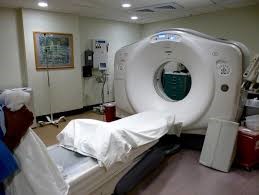The practice has procedures in place for appropriate prescribing for patient safety. Please refer to the relevant sections below.
Fear of Flying
People sometimes ask the doctor or nurse to prescribe diazepam, or similar drugs like lorazepam, temazepam or clonazepam, for fear of flying or to help sleep during flights. In the past, this type of prescribing was permitted, but guidance has changed and the practice has updated its protocols to reflect National, safe guidance on prescribing policy in this area.
Birchwood Medical Practice does NOT prescribe sedatives for fear of flying. This policy decision has been made by the GP Partners and is adhered to by all prescribers working in the practice.
Prescribing these drugs is not recommended any more for these reasons:
- Although plane emergencies are rare, taking Diazepam reduces awareness and reaction times for patients so you risk not being able to react to save your life if you have to escape quickly. You may also put other people in danger by getting in their way or making them help you.
- The use of these drugs can make you sleep in an unnaturally deep sleep. This means you won’t move around as much as during natural sleep so you have a bigger risk of getting a blood clot (Deep Vein Thrombosis – DVT) in the leg or lungs. Blood clots are very dangerous and can kill. This risk is bigger if your flight is longer than 4 hours.
- They have short term bad effects on memory, co-ordination, concentration and reaction times, and are addictive if used for a long time, with withdrawal leading to fits, hallucinations, agitation and confusion. They have also become widely used drugs of abuse since they first came on the market. Diazepam in the UK is a controlled drug. The prescribing guidelines doctors have to follow say that that use to treat short-term ‘mild’ anxiety is inappropriate. They are only to be used short term for a ‘crisis in generalised anxiety’. But if you are having such a crisis you are not likely to be fit to fly. Fear of flying in isolation is not a generalised anxiety disorder.
- Some people get agitated and aggressive after taking diazepam and similar drugs, and behave in a way that they would not normally, which can pose a risk on the plane. This affects everyone’s safety and could get you into trouble with the law. A similar effect can be seen with alcohol, which has led to people being removed from flights.
- There is evidence use of these drugs stops the normal adjustment response that would gradually lessen anxiety over time, and may increase anxiety in the long term, especially if used repeatedly.
- Diazepam and similar controlled drugs are illegal in a number of countries. They may be confiscated or you may find yourself in trouble with the police.
- Diazepam stays in your system for some time. If your job or sport needs you to have random drug testing you may fail this having taken diazepam.
- It is important to tell your travel insurer about your medical conditions and medications you take. If not, there is a risk of your insurer not paying if you try to make a claim.
So we no longer provide Diazepam or similar drugs for flight anxiety. Instead you may wish to consider one of these aviation industry recommended flight anxiety courses.
Fly And Be Calm™
Fly And Be Calm™ is an instant download and comes with a money back guarantee (Guarantee does not apply to app versions).6 MP3 tracks which include instructions, the fear removal tool and two hypnotic tracks. Visit the website: https://flyandbecalm.co.uk/
Easy Jet
www.fearlessflyer.easyjet.com
British Airways
https://www.britishairways.com/en-gb/information/travelassistance/flying-with-confidence
Virgin Atlantic
https://www.flyingwithoutfear.co.uk/
General Phobia Prescribing
Many people with a phobia don’t need treatment and avoiding the object of their fear is enough to control the problem. Medication isn’t usually recommended for treating phobias, because talking therapies are usually effective and don’t have any side effects. However, medication may sometimes be prescribed to treat the effects of phobias, such as anxiety once other treatment options have been explored. For more information of phobia treatment pathways, please review the NHS Website and book an appointment if you wish to discuss your phobia and talking therapies further.
Prescribing for Medical Procedures
- Where the practice has made the test request (e.g. lower GI endoscopy/MRI etc)
- We do not prescribe benzodiazepines for sedation due to the associated risks
- A patient can request a consultation to discuss available options as relaxants
- Where secondary care/3rd party has made the request – the practice does NOT undertake the prescribing. This is the responsibility of the requesting, responsible clinician/team for patient safety and clinical responsibility reasons.

